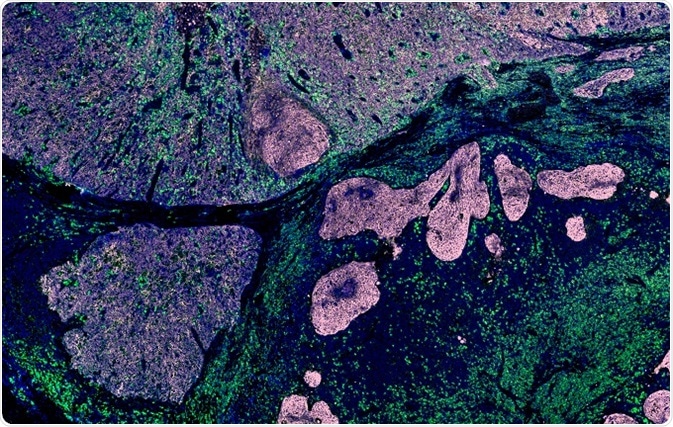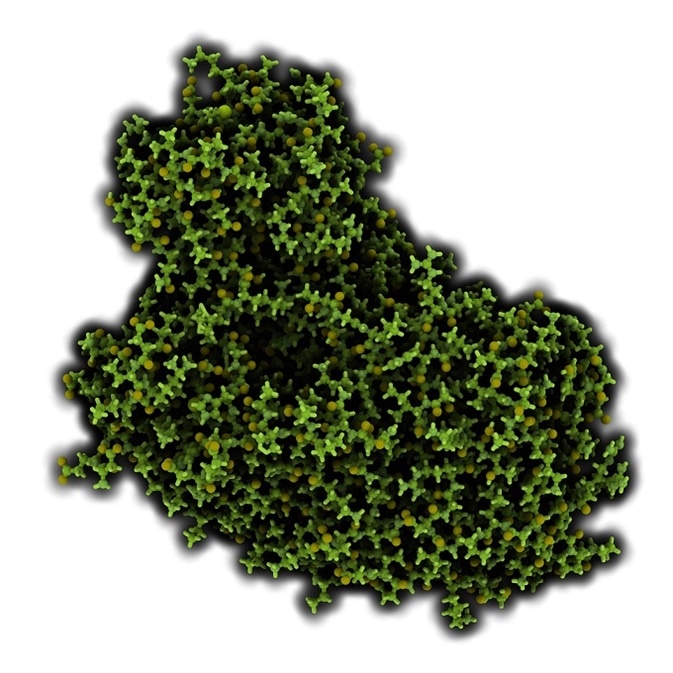
Using Luminescence to Detect Chemotherapy Response in Patients with Colorectal Cancer
Colorectal cancer is a collective term for cancer of the colon or rectum. Colon cancer and rectal cancer are often grouped together because they have many features in common. The majority (96%) of colorectal cancers are adenocarcinomas that start in the mucus-producing cells of the large intestine.
 © Carl Dupont/Shutterstock.com
© Carl Dupont/Shutterstock.comColorectal cancer is the third most commonly diagnosed cancer in both men and women, with around 1 in 20 individuals developing the disease at some point during their lifetime. Globally, colorectal cancer causes around 800,000 deaths each year and is the second leading cause of cancer death in women, and the third for men. However, colon cancer is curable if detected early.
Treatment of colorectal cancer
There are a variety of treatment options available for colorectal cancer, which can be broadly categorized as chemotherapy, radiotherapy, and surgery. The precise strategy adopted depends on the type, size and location of the tumor.
Surgery is the first-line treatment either as a colonoscopy to remove polyps or resection to remove the affected region of large intestine. If a tumor is borderline resectable, radioablation or chemotherapy may be used to reduce its size before surgical removal.
Although surgery is typically performed with curative intent, there is always the risk of tumor recurrence. Adjuvant therapy is commonly used to reduce the risk of the cancer reappearing after surgery by eradicating any remnants of tumor or micrometastases that may be present.
Post-operative adjuvant chemotherapy with 5-fluorouracil (5FU)-based regimens have been shown to improve patient outcome after resection of high-risk stage II and stage III colorectal tumors. Among patients with stage III colorectal cancer adjuvant therapy improved 5-year survival rates by 10–15%1. However, a third of patients who receive adjuvant therapy still progress to metastatic disease.
It would be beneficial to be able to identify in advance those patients most likely to benefit from adjuvant therapy, so treatment can be optimized on a patient-by-patient basis to avoid unnecessary adverse reactions from the patient.
Tailoring cancer treatment
With growing knowledge of the complexities of cancer biology there is an increasing move towards personalizing cancer therapy based on the presence of specific molecular markers. Identifying those patients with cancers sensitive to specific chemotherapy drugs can optimize treatment outcomes whilst avoiding toxicity and side effects in patients for whom a treatment is unlikely to achieve a survival benefit.
In colorectal cancer, various clinical and molecular factors have been identified as predictors of prognosis or treatment2. Unfortunately, however, the markers predicting the efficacy of chemotherapy in metastatic colorectal cancer do not provide an indication of the likelihood of response to adjuvant treatment.
Ongoing research has successfully identified potential molecular markers for predicting the efficacy of adjuvant treatment in colorectal cancer. For example, a high density of tumor-associated macrophages has been found to strongly predict the efficacy of 5FU adjuvant chemotherapy in stage III colorectal cancer3. Similarly, an adenosine triphosphate-based chemotherapy response assay (ATP-CRA) has been applied to assess the likelihood of clinical response to 5FU–based adjuvant chemotherapy in stage II colorectal cancer4.
Predicting sensitivity to fluorouracil-based adjuvant chemotherapy
The ATP-CRA was developed to assess tumor cell viability by comparing intracellular levels of ATP among drug-exposed cells to those in an untreated control. The assay can be used on small sample sizes, yields results in only 7 days and has been successfully used to predict response to chemotherapy in stage III colorectal cancer. Researchers have now demonstrated that it can also provide an indication of clinical response to 5FU–based adjuvant chemotherapy in stage II colorectal cancer4.
In a study by Kwon et. al (2016), cells from the tumors of 86 patients with stage II colorectal adenocarcinoma, incubated either with or without 5FU, were evaluated using ATP-CRA to determine cell death rate. ATP concentration was calculated by measuring luminescence on addition of luciferin and excess luciferase. Sensitivity to 5FU was defined as 20% reduction of ATP in 5FU–treated cells compared with untreated controls.
 © molekuul_be/Shutterstock.com
© molekuul_be/Shutterstock.comDisease-free survival at 5 years was significantly higher among those patients whose tumor cells were found to be sensitive to 5FU in the ATP-CRA condition4. Multivariate analysis showed that a reduction in ATP of less than 20% predicted poor disease-free survival after 5FU-based adjuvant chemotherapy.
In vitro ATP-CRAs of tumor biopsies may thus be a useful tool for identifying those patients with colorectal cancer who are likely to benefit from 5FU-based adjuvant chemotherapy. This would allow physicians to select an alternative chemotherapy regimen for those patients with tumors less susceptible to 5FU chemotherapy, whereby increasing the chance of treatment success and avoiding unnecessary adverse treatment effects.
Although the assay has been demonstrated in patients with stage II colorectal cancer, it could equally be used across a wide range of cancer types as it measures ATP levels rather than a specific cell type. Furthermore, the technology for measuring luminescence is already readily available and so the technique could be introduced into clinical practice without delay.
Lu-mini
Lu-mini™ (Vitl Life Science Solutions) is a versatile single-tube luminometer that is being used to detect the luciferase response to ATP and has been designed for use in assay development.
Powered only from a USB connection the Lu-mini is a robust, single-tube, benchtop luminometer optimized for the measurement of biological and chemical luminescence reactions. The Lu-mini provides fast reading time with an optional integration phase using either 10-15mm round vials or 10mm square cuvettes.
The Lu-mini is available from June 2018.

References
- Twelves C, et al. Capecitabine as adjuvant treatment for stage III colon cancer. N Engl J Med 2005;352:2696–2704.
- Dienstmann R, et al. Personalizing colon cancer adjuvant therapy: selecting optimal treatments for individual patients. J Clin Oncol 2015; 33:DOI 10.1200/JCO.2014.60.0213
- Malesci A, et al. Tumor-associated macrophages and response to 5-fluorouracil adjuvant therapy in stage III colorectal cancer, OncoImmunology 2017;6(12):DOI 10.1080/2162402X.2017.1342918
- Kwon HY, et al. In Vitro Adenosine Triphosphate-Based Chemotherapy Response Assay as a Predictor of Clinical Response to Fluorouracil-Based Adjuvant Chemotherapy in Stage II Colorectal Cancer Cancer Res Treat. 2016;48(3):970‑977
About Vitl Life Science Solutions
Vitl designs, manufactures and sells high quality laboratory instruments to compete with market leaders at an affordable price with unrivalled functionality, usability and style.
The growing Vitl laboratory products range includes the world’s best-selling microplate heat sealer- the VTS and its compact counterpart the MicroTS. Vitl also sell a range of foil and film heat seals as well as microtube pickers and programmable mixers and vortexers.
Vitl products was established in 2006 by the medical, diagnostic and analytical device design and manufacturing company Integrated Technologies Ltd.
As a member of the ITL group, Vitl benefits from the experience and expertise of a parent company that works with globally successful medical devices and laboratory instrumentation.
Vitl products are sold through a global network of distributors and OEM (private label) partners, managed by their main sales offices in the UK, USA and China.
Sponsored Content Policy: News-Medical.net publishes articles and related content that may be derived from sources where we have existing commercial relationships, provided such content adds value to the core editorial ethos of News-Medical.Net which is to educate and inform site visitors interested in medical research, science, medical devices and treatments.
Last updated: Jun 19, 2018 at 9:43 AM


































No hay comentarios:
Publicar un comentario